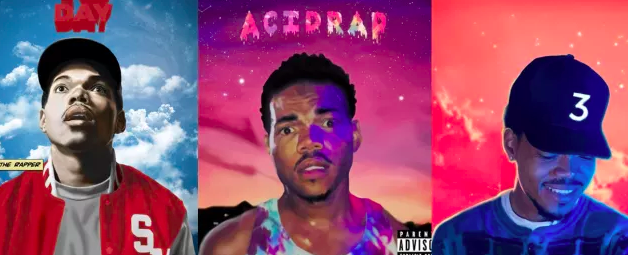Uncovering Chance?s transformation from high school punk to wholesome family man, community hero, and your favorite Christian rapper.
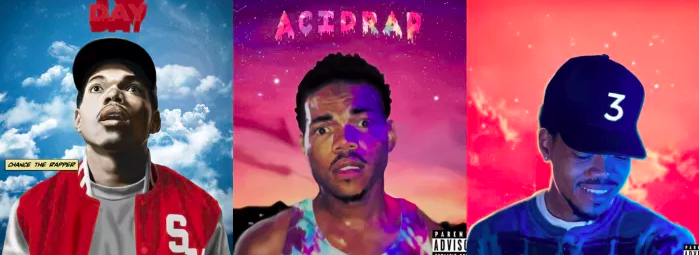
I heard Acid Rap for the first time in my senior year of high school. A friend of mine played me a few songs from the mixtape and I remember initially thinking Chance?s voice was somewhat grating and being put off by his nasally delivery and constant shrieks.
But there was something undeniably new and exciting, yet nostalgic, about his music that I found intoxicating. I quickly fell in love with the soulful and jazzy melodies combined with his over-the-top energetic delivery and lyrics that blurred the line between ignorant and insightful.
Since then, Chance has become one of my favorite artists, and Acid Rap will always hold a special place in my heart. But Chance?s story goes far beyond that mixtape ? from winning a Grammy for Coloring Book and starting his own charity, to having a daughter and finding himself through Christianity, Chance has grown into a completely different artist and person from when I was first introduced to him.
To understand the magnitude of his development, take his first mixtape, 10 DAY, for example. It was recorded while he was suspended from high school (for 10 days) after being caught smoking weed on campus. In the first song, 18-year-old Chance cuts rights to it ? ?I got suspended, ooohh you got suspended, for chiefin? a hunnid blunts, 14,400 minutes.?
The mixtape is less refined than Acid Rap, but there is no lack of Chance?s signature charm and explosive energy. An incredible showcase of his talent and creativity, ?Brain Cells? is an impressive standout.
Source: YouTube
This mixtape established some buzz around Chance?s name, and in April of 2013, just a year after 10 DAY, came Acid Rap. What made Acid Rap era Chance special to me was how much I was able to relate to his adolescent view of the world. He and I were in a similar phase of life ? no longer teenagers but not exactly adults either. At its core, Acid Rap is a coming of age tale, a window into the transition period where the world views you as a grown-up, but you still feel like a kid.
The mixtape is packed with sharp social commentary followed by wistful longing for the ignorance and comfort of childhood. Chance portrays an invincible teenager who recognizes he is lost in the world but refuses to consider that he may not know it all. In one moment he is confident and excited about the future ? and in the next, he is apathetic and pessimistic when confronted by the real world. He questions everything, detests authority, and experiments with drugs in an attempt to find his purpose and place in the universe.
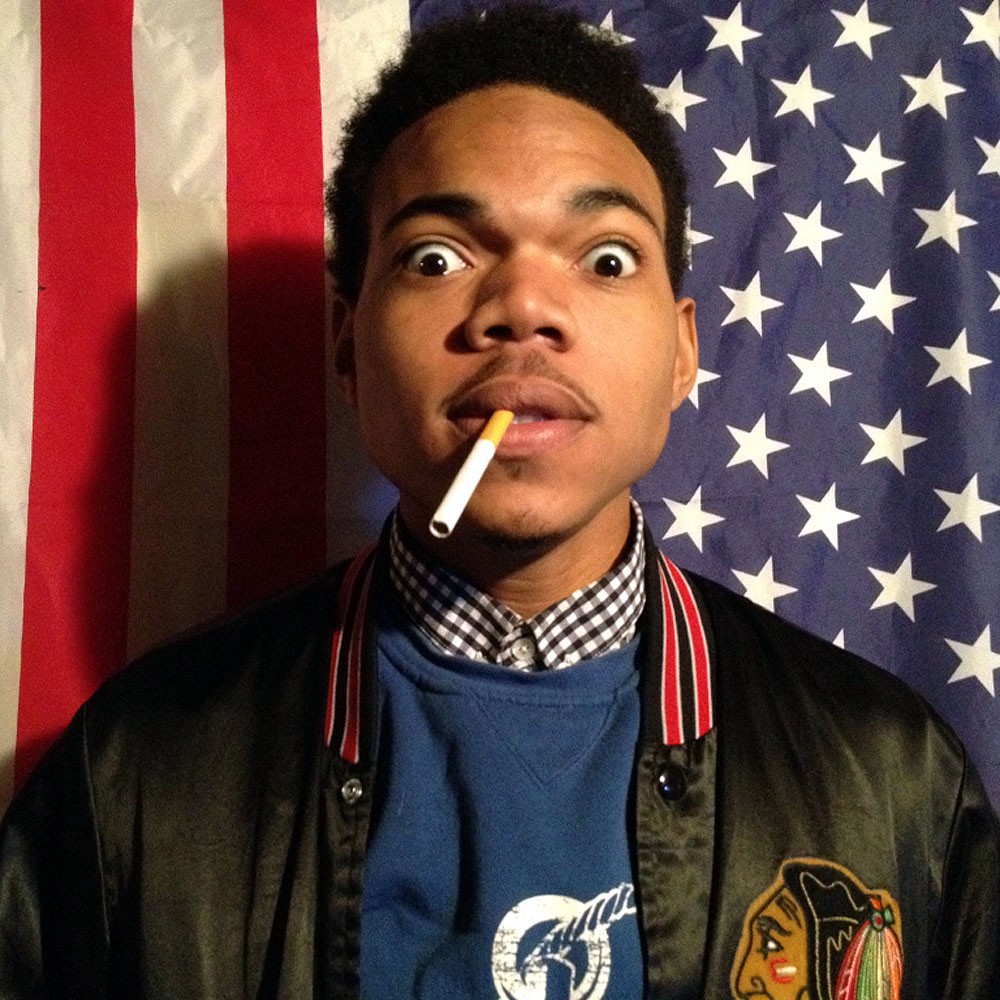 Source: Rapbasement.com
Source: Rapbasement.com
This mixtape catapulted Chance to a new level of fame, and he even performed at the Welcome Week at my school as I entered college. At this point, I considered Chance and I kindred spirits. I felt as though if he was a student at my school we would have ran in the same circles, partying, free-styling, and listening to rap. However, during my four years of undergrad, I witnessed a remarkable transformation. The high school fuck-up I so related to became a hero to his community, embraced his faith in Christianity, and changed the sound of rap music as an unsigned artist. Chance was no longer my peer, but my role model.
So how did Chance go from ?asking God to show his face? on Acid Rain (a song that found itself on Obama?s playlist) to making a Grammy-winning gospel album? In a 2016 interview with GQ, Chance elaborates on that transition period. He explains that after the release of Acid Rap, a significant portion of which was recorded on LSD, his grandmother was concerned about his drug use and prayed to God to ?Make sure that [Chance] fails at everything that is not like You. Take it away. Turn it into dust.? According to the interview, Chance interpreted this as a sign that any success he would attain would include God ? his failures wouldn?t.
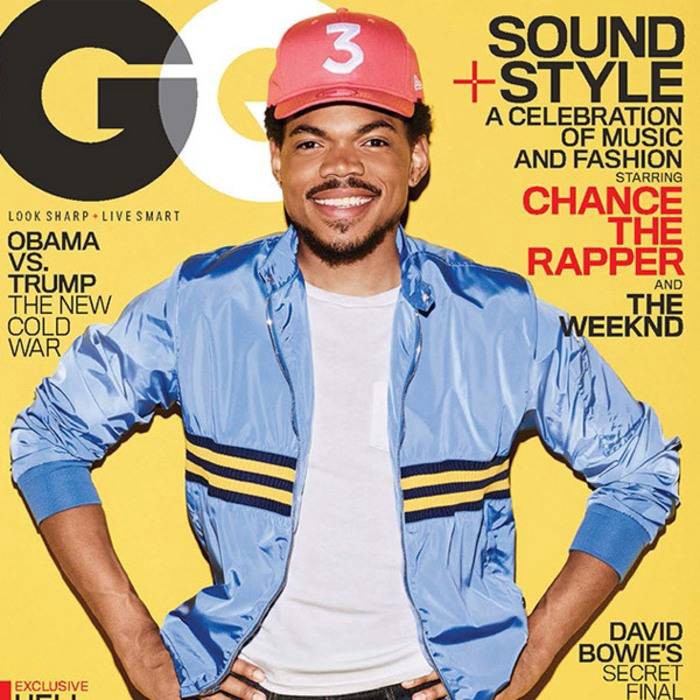 Chance the Rapper for GQ
Chance the Rapper for GQ
Chance then moved to Los Angeles in 2014 and failed. He spent six months in the city living in a ?big-ass rapper mansion? that was supposed to house him and fellow musician James Blake. Although Chance told people they were living together and even put Blake?s name on the lease without his knowledge, Blake claims to have never lived there.
Speaking of his time in L.A., Chance told GQ ?I was just fucking tweaking. I was a Xan-zombie, fucking not doing anything productive and just going through relationship after relationship after relationship. Mind you, this is six months.?
Chance then moved back to Chicago and got in touch with his roots, setting the stage for Coloring Book. He got back together with his ex-girlfriend Kirsten Corley, who he met when he was nine years old. She became pregnant, and according to him, ?it was the baby that, you know, brought my faith back.? During the pregnancy, doctors discovered that his daughter had atrial flutters, or an irregular heartbeat, which prompted Chance to start praying non-stop.
He continued to make music in the meantime, and in May of 2015, Donnie Trumpet and the Social Experiment released their album Surf. The Chicago-based group was made up of Chance alongside fellow musicians and collaborators.
The first single from the album, ?Sunday Candy,? stood out in particular as an uplifting gospel-influenced ode to his grandmother and their shared faith. Less than four months later, Chance?s girlfriend gave birth to a healthy baby girl.
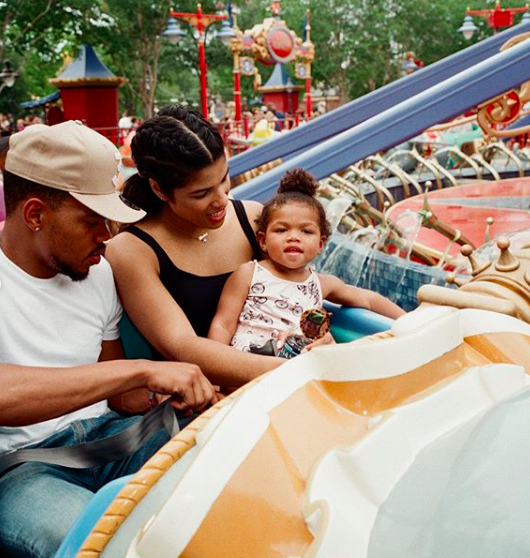 Source: @chancetherapper on Instagram
Source: @chancetherapper on Instagram
Chance then set his sights on his next mixtape, known at that point as ?Chance 3.? The project began as a collection of themes embodying his state of mind at the time: god, love, Chicago, and dance. But before he could develop the mixtape further, fellow Chicago rapper Kanye West called on Chance to join him in Los Angeles to work on his seventh album, The Life of Pablo.
Chance flew to L.A. with ?gospel vibes? and encouraged Kanye to make glory songs ? resulting in the grandiose, emotional, choir-based ballads that comprise the core of the album. Chance had a hand in five tracks on the project, even writing alternate versions of ?Famous? and ?Waves? for Kanye:
The Life of Pablo came out in February 2016, and on ?Ultralight Beams? we got another glimpse of Chance?s new direction. While both Kanye and Chance are no strangers to biblical references and gospel-influenced sounds, on this track Chance sets the tone for Coloring Book with a powerful verse in which he proclaims ?This little light of mine, glory be to god,? referring to him using his divine talents to praise God. After collaborating with his idol, Chance returned to Chicago and did exactly that.
A majority of Coloring Book was made in March and April of 2016. Chance rented out an entire studio complete with a choir, orchestra, and vocalists. He slept there with his girlfriend and daughter for most of the process, even putting ?mattresses in all the rooms,? telling GQ, ?it became a camp.?
The day before the release of Coloring Book, the song ?Grown Ass Kids? was leaked. While it never made it to the mixtape due to sample clearance issues, the song encapsulates the essence of Coloring Book, with Chance proudly declaring:
?Everybody finally can say it out loud, ?my favorite rapper a Christian rapper.??
The mixtape came out on May 13, 2016, and although at the time the evolved, spiritual, and wholesome version of Chance took me by surprise, I quickly grew to love this vibrant and personal project. While The Life of Pablo sounds like a rap album with some gospel influences, Coloring Book is an innovative fusion of hip hop and gospel. Certain parts of the mixtape even feel more like Christian music than rap, such as on the song ?How Great,? in which nearly the first three minutes are comprised of a Christian hymn sung by the Chicago Children?s Choir.
While this mixtape was a stark departure from his previous works both sonically and in terms of subject matter, it felt like a breath of fresh air in a rap game that generally shuns the very themes Chance was embracing. Never afraid to go against the grain, Chance was eager to show off his progression, proudly announcing the end of an era on the song ?Angels,? proclaiming:
?I just had a growth spurtIt done took so long, my tippy toes hurtYou can keep the nose ring, I don?t have to soul search.?
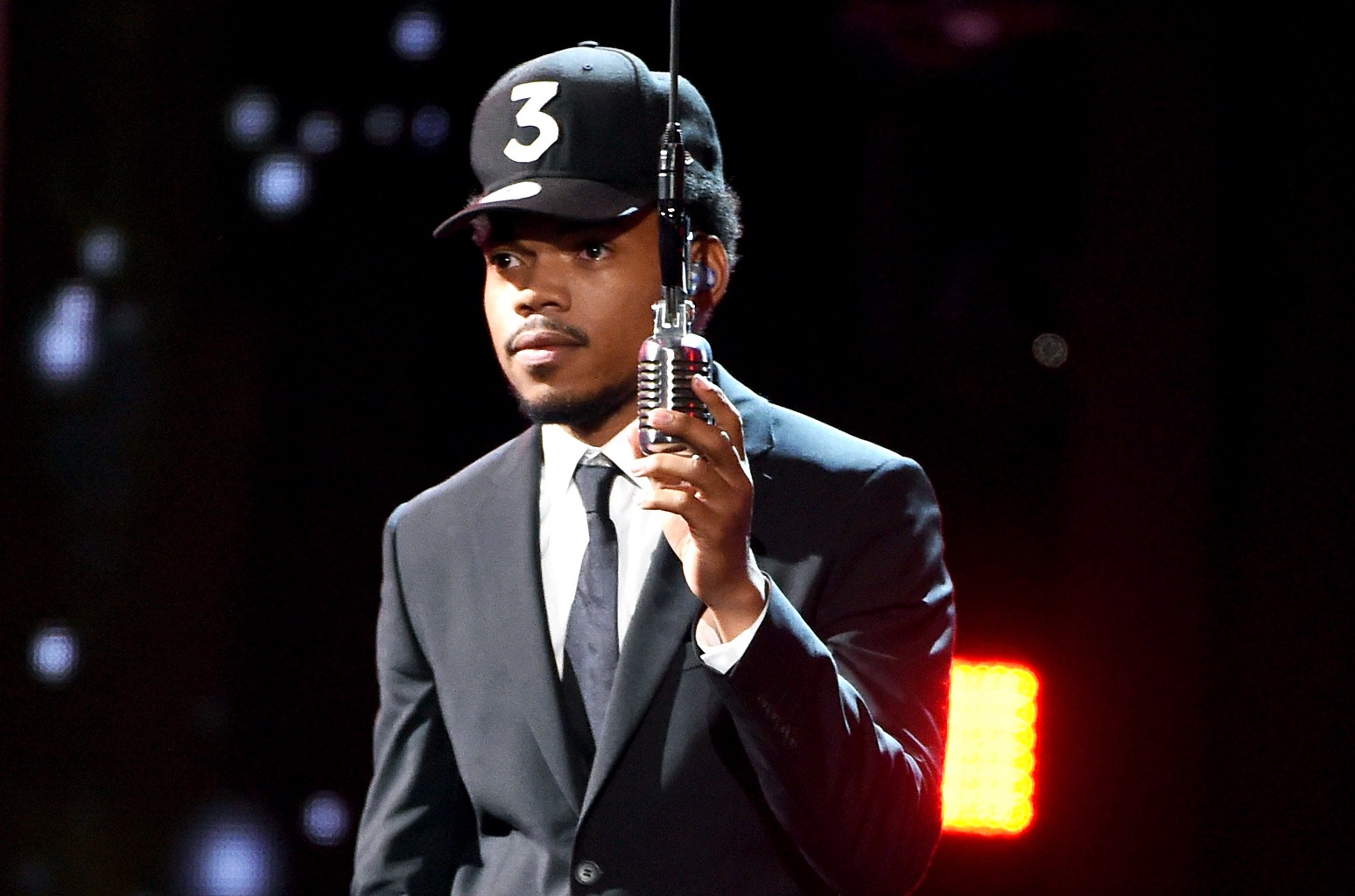 Source: Getty Images
Source: Getty Images
Chance conveys that he is no longer lost and directionless ? he has found himself in his family and in his faith. Throughout the 14 track mixtape, he attempts to bring listeners up to speed on his journey and give us a glimpse into his headspace. On the song ?Finish Line/Drown,? for example, Chance opens up about his time in L.A. and his addiction, stating:
?Last year got addicted to xans, started forgetting my name and started missing my chance, L.A. for four months, end up leaving right back, I?m in love with my city, bitch, I sleep in my hat.?
Chance is exactly where he needs to be ? home with his family in Chicago, where he has become a hero to his community. A longtime philanthropist, he started his own charity in 2016 called Social Works that tackles issues such as homelessness, mental health, and funds art programs in public schools. The charity has raised over $4.2 million for Chicago Public Schools, given six $100,000 grants to mental wellness service providers, and raised over $100,000 in aid for the homeless.
Social Works also hosts free ?Open Mike? nights for Chicago?s youth to express themselves and learn from established artists, such as Childish Gambino and Kanye West, who have both attended the sessions. Chance himself was part of a similar program at the start of his career, and you can check out a video of young Chance performing ?Nostalgia? off 10 DAY below.
Source: YouTube
He has also hosted a free festival for Chicago teens, and during the November 2016 elections, he led hundreds to the polls after a free show. Last year, Chance put on a benefit concert celebrating the 50th anniversary of the Special Olympics, and he was one of the first rappers to bring a sign language interpreter on tour with him. He even bought out an entire movie theatre for Chicagoans to see the movie Get Out for free upon its release. Chance is for the people.
His transformation has been remarkable to watch, accomplishing an astounding amount in his 25 years. Chance has made a tangible difference in his community and changed the sound of rap, all while disrupting the music industry through his monumental success as an unsigned artist. As he says on ?Ultralight Beams,? ?You cannot mess with the light, Look at lil? Chano from 79?.
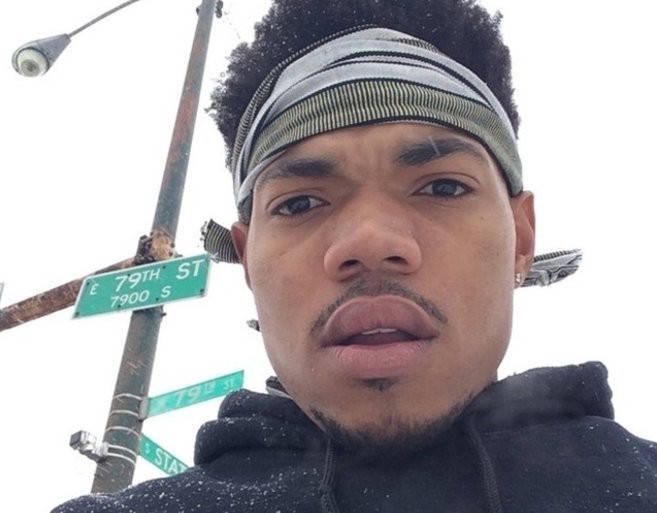 Source: @Genius on Twitter
Source: @Genius on Twitter
If you enjoyed this story, follow me here or on Instagram @HipHopUnrapped47 for more content!
